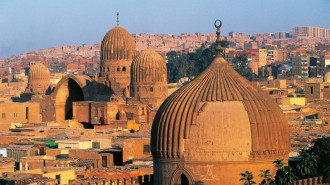
Under pressure: Uncertainty and instability for Syrian refugees facing mass repatriation across Lebanese borders

With Lebanon starting its repatriation of hundreds of Syrian refugees for the first time since Syria’s brutal civil war in 2011 under President Bashar al-Assad’s regime, rights groups and activists have expressed extreme concern for this migration, with growing fears that this repatriation has been a result of coercion, corruption and mismanagement by Lebanese authorities.
It has been claimed that Lebanese officials are acting unilaterally without consulting the United Nations or rights protectionist groups to ensure a safe and stable transition for returnees migrating back to their home country.
This concern was further compounded by Lebanon’s recent withdrawal from the UNHCR registration in 2015 which according to UNHCR spokesperson Paula Barrachina Esteban is normally responsible for “maintaining and updating information on registered Syrian refugees in Lebanon, including recording civil events, i.e. births, marriages, divorces and deaths, as well as, following verification, actively de-registering persons who have returned to Syria and in-activating cases for assistance if they are not present for validation.”
"Syrian refugees are being promised support, either from the Lebanese government or the Syrian one, in the form of homes or security, but unfortunately, very little of that is being met, and there’s not much documentation from government officials on the process"
To register outside of the UNHCR refugees are required to have a Lebanese sponsor, state approval and a $200 renewal fee which is almost impossible to attain.
Without these rigorous procedures in place, there is an inaccuracy of data which is crucial for planning and implementing refugee support as well as providing long-term durable solutions for refugees wishing to return home safely.
|
As of October 12, President Michel Aoun announced the move for the UN General Security to start sending Syrian refugees back home “in batches”.
However, this repatriation has faced immense scrutiny as many argue that refugees aren’t being given adequate access to resources and information to make an informed decision about repatriation.
There is limited knowledge surrounding the current political landscape of Syria and Human Rights Watch has reported that many have faced extreme human rights abuses at the hands of the Syrian state and affiliate militias upon their return which include kidnappings, torture and political persecution.
According to ARM Lebanon spokesperson Kareem Nofal, “Syrian refugees are being promised support, either from the Lebanese government or the Syrian one, in the form of homes or security, but unfortunately, very little of that is being met, and there’s not much documentation from government officials on the process, we only know about this through scattered statements in the press or on newspaper coverage.”
The Lebanese pound’s dramatic devaluation of over 80 percent has also contributed to many refugees feeling coerced into repatriation.
The exclusion of Syrians from Lebanon’s registration system has meant that many have found it impossible to earn a living wage or find stable living conditions with over 40 percent of the country facing unemployment.
"Despite many food security programmes coming from international agencies or donors, much of that aid, especially aid that is going through the Lebanese government, does not reach refugee families or households"
Within this statistic, over 90 percent of all Syrian households are living in extreme poverty, with an average monthly wage of just $36.
The Lebanese state has faced scrutiny for its refusal to support citizens and refugees alike in the midst of the crisis.
Kareem Nofal notes that “despite many food security programmes coming from international agencies or donors, much of that aid, especially aid that is going through the Lebanese government, does not reach refugee families or households.”
|
Activists across the country have argued that this mismanagement of basic resources is a direct result of the embezzlement and corruption that wreaks havoc within Lebanon’s political class.
A spokesperson from the UNHCR states that “while most Syrian refugees have indicated that they wish to return to Syria someday, their decision-making is based on weighing a variety of factors.
Most refugees tell UNHCR that they remain concerned about a combination of factors, including safety and security; housing; access to essential services and livelihoods.
As a result, many are forced to return home as they have become increasingly exposed to exploitation, deportation and are unable to access state resources.
"Lebanon plans to send 15,000 refugees to Syria per month. The UN has warned that this could result in grave human rights violations"
The refugee population in Lebanon has often been used as a scapegoat within Lebanese politics, with many blaming these communities for the social and economic collapse within the country.
Free Patriotic Movement leader Gebran Bassil has accused the Syrian community of being the leading cause of Lebanon’s financial downturn and strongly advocated for the prompt repatriation of Syrian refugees, stressing that “Lebanon cannot be a political asylum”.
Protesters argue that the exclusion and persecution of Syrian refugees by the Lebanese state is an intentional political tool to avert the public’s attention from corrupt handlings.
Nofal explains that “prohibiting the registration of Syrians in Lebanon as refugees absolves the Lebanese state from acting responsibly and treating Syrians with dignity by basically no longer recognising Syrians who are applying for asylum. It also serves as a way to make the reality of refugees invisible from public knowledge.”
As it currently stands, Lebanon plans to send 15,000 refugees to Syria per month. The UN has warned that this could result in grave human rights violations, should the repatriation not be entirely voluntary with adequate resources on hand to ensure a smooth and stable return.
Rights groups are calling on the international community to acknowledge where aid money is being sent, and how it is being used by Lebanese officials.
Given that Lebanon has previously demanded 30 billion USD for hosting Syrian refugees at the Brussels VI Conference, it is imperative that Europe closely monitors how money is being spent and if Syrians are benefitting or not.
Activists also warn that European countries are not absolved of their own repatriation efforts, such as the United Kingdom’s Rwanda Asylum Policy, which sets the stage for the justification of discriminatory and dangerous policies against refugee communities worldwide.
Lucy Rafaela Farha is a London-based freelance journalist and digital creative.
See more of her work on her Linkedin page

![Palestinians mourned the victims of an Israeli strike on Deir al-Balah [Getty]](/sites/default/files/styles/image_684x385/public/2024-11/GettyImages-2182362043.jpg?h=199d8c1f&itok=xSHZFbmc)


![The law could be enforced against teachers without prior notice [Getty]](/sites/default/files/styles/image_684x385/public/2178740715.jpeg?h=a5f2f23a&itok=hnqrCS4x)
 Follow the Middle East's top stories in English at The New Arab on Google News
Follow the Middle East's top stories in English at The New Arab on Google News


